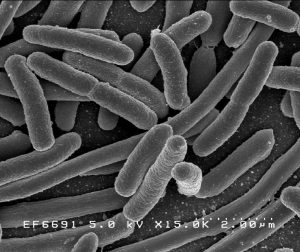 The office of Gov. Tom Wolf confirmed a drug-resistant “superbug” has made its debut it the United States.
The office of Gov. Tom Wolf confirmed a drug-resistant “superbug” has made its debut it the United States.
According to state officials, a 49-year-old Pennsylvania woman, whose hometown was not released, is the first known American to contract the antibiotic-resistant mcr-1 “superbug.” The woman’s condition and where she was being treated had not been released as of Thursday evening.
Officials have released that the “superbug”, which an expert told NBC News is a “nightmare bacteria,” has a resistance to colistin-based drugs.
Thursday’s statement from Wolf:
“We have learned about a human case of mcr-1 in a Pennsylvania resident, and my administration, through the Department of Health, immediately began working closely with the Centers for Disease Control and Prevention (CDC), as well as the United States Department of Defense (DOD), to coordinate an appropriate and collaborative response between federal, state, and local entities. We are taking the emergence of this resistance gene very seriously and we will take necessary actions to prevent mcr-1 from becoming a widespread problem with potentially serious consequences. The safety of Pennsylvanians is our utmost priority.”
Antibiotic resistant bacteria is an urgent public health problem that we must focus on intensively.
— Senator Bob Casey (@SenBobCasey) May 26, 2016
The news was first made public Thursday after a report in Antimicrobial Agents and Chemotherapy. The report stated the woman who came to a Pennsylvania clinic and was found to have a a rare strain of E. coli that is resistant to colistin-based drugs.
Colistin is a powerful drug that is often used as a last resort to fight antibiotic resistance. The drug is often used when superbugs have made other antibiotics useless.
“It is the end of the road for antibiotics unless we act urgently,” said Tom Frieden, director of the Centers for Disease Control and Prevention.
While the rare mcr-1 “superbug” has been found in patients in other parts of the world, the Pennsylvania case marks the first in the United States.








